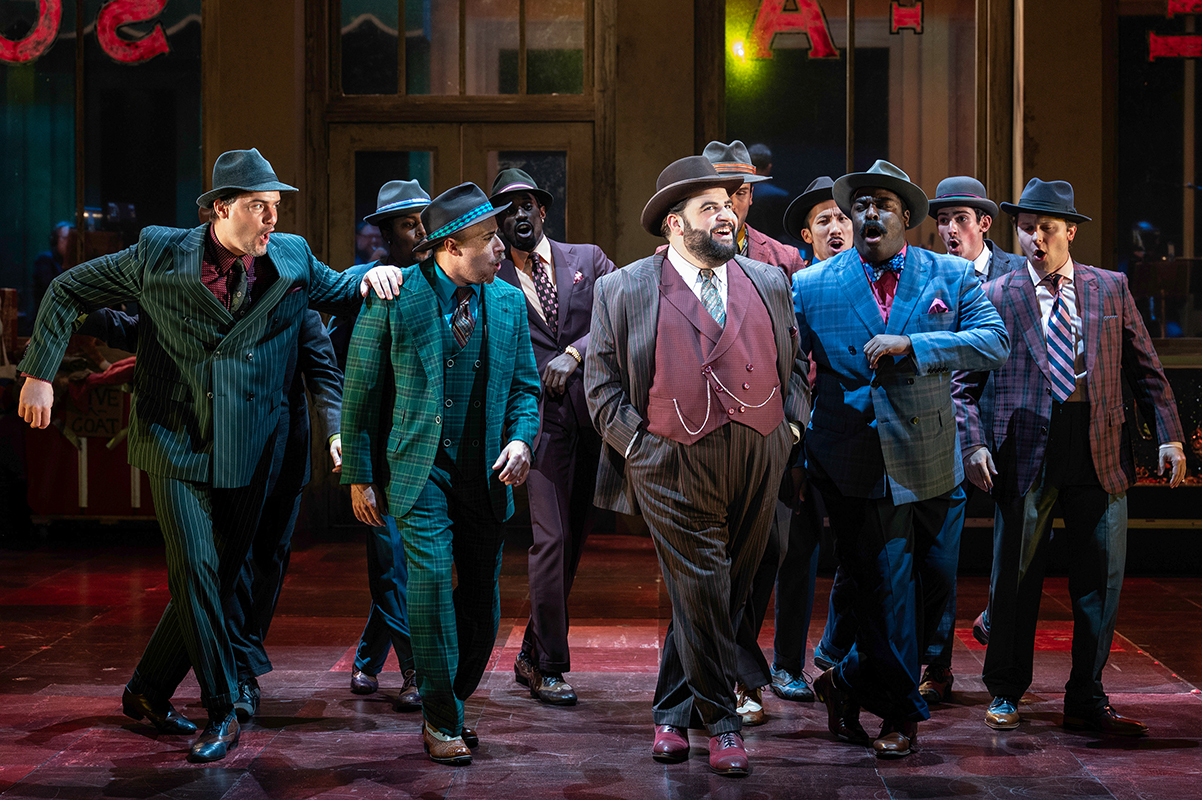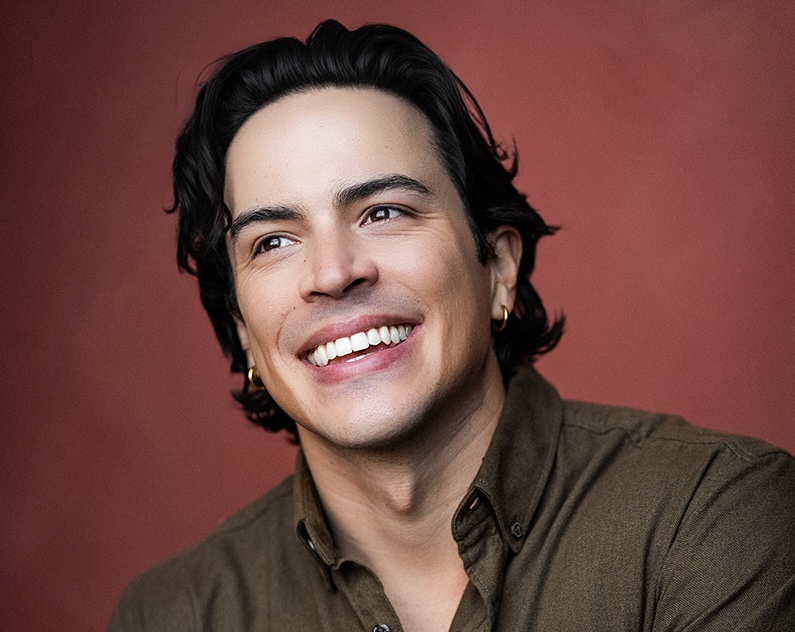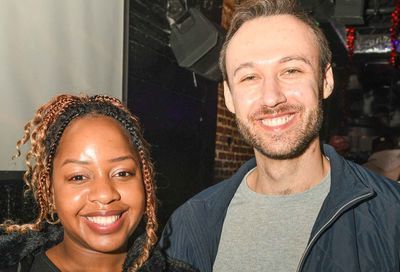The Wild Duck Review: A Rare Ibsen Revival That Soars
The Shakespeare Theatre's Simon Godwin turns Ibsen's "The Wild Duck" into a sharp, resonant study of truth, guilt, and family fallout.

Almost every reference to Ibsen’s The Wild Duck starts with how rarely it’s performed. You can see why: the play is basically a tragedy wrapped up in a comedy wrapped up in questions of class, status, gender, and whether deception is a necessary social glue. It’s a Rubik’s cube of a play but — credit where it’s due — director Simon Godwin makes it look easy. In his hands, this is an intimate, tragic-comic domestic drama you can really get your teeth into.
And kudos to Godwin (and adapter David Eldridge) for seeing how relevant The Wild Duck is for a 21st century audience. Even if Ibsen writes as a man of his times, it’s still true that a single mother today might push her daughter towards financial security, a young man might make an ideological break from an overbearing father, and a destabilized family might forget to protect its fledgling.
And there are further poignancies reaching through the decades: the vulnerable are still being used and pressured by amplified voices; women and children are still navigating a world largely controlled by the decisions of men.
Ibsen tees up his drama with a soiree held by the wealthy Werle family where two old school friends reconnect: Gregers Werle, the family scion, and Hjalmar Ekdal, a man of more humble origins. The scene quickly shifts to the following day at Ekdal’s house and the unexpected arrival of Gregers who asks to rent a room, despite the trepidations of Ekdal’s wife, Gina.
If, at first, it seems Gregers is about rejecting his wealthy lifestyle for a less pretentious existence, it’s soon apparent he has other ideas. Gregers has a philosophy and he is bound and determined to see it through, whatever the cost.
As a device for exploring Ibsen’s ideas, Werle is a fascinating disrupter, but it can’t be an easy role to play. Deliver it too large and he could quickly become a poor man’s Mephistopheles, play it too low and you lose Werle’s sense of purpose — along with its entitled arrogance. Alexander Hurt does a very good job of threading this needle by evoking a quietly questing certainty that gradually reveals how he sees his ideals as far more important than the people who grapple with them.
He may have rejected his cruel and powerful father, but he is ultimately just as bad. It’s a well-crafted approach with wider resonance: how different is Werle from the influencers peddling impossible goals that wreak havoc on their followers? Or the AI chatbots “befriending” vulnerable teenagers and offering dangerously agnostic advice?
As Ekdal, his unsuspecting target, Nick Westrate has two of his own challenges. The first is systemic: there is something odd in the trajectory of this character. For four-fifths of the play, he offers little to no humor. But in the moments before the greatest consequences land, he suddenly and unaccountably becomes quite funny. It may make for a tantalizing and suspenseful contrast with the tragedy we know is imminent — but it just doesn’t sit right with all that has come before. Whether the problem lies with Ibsen, Godwin, or Westrate (for perhaps not being funnier all along) is arguable, but in the end, it doesn’t matter: the result is off-kilter and it unbalances the cathartic flow.
The other hurdle here is how to manage the evolution of this man as he unravels. Ekdal goes from being mildly insecure to being generally unpleasant before becoming thoroughly foul. Westrate does a good job of bringing the necessary clarity to this evolution, even when his ability to reject his deepest bonds beggars belief. Could it be a tad subtler? Sure, but Westrate’s demonstrative approach is certainly a safer bet and serves as a strong driver. And to his credit, he allows us to disdain more than pity this Ekdal, and that saves this performance from becoming maudlin.
The two leads aside, the true standout in the production is Melanie Field as the long-suffering Gina Ekdal. Although her character is written with near-saintly forbearance, Field does a superb job of evoking this woman’s ruefully rich inner life as she finds ways to manage her weaker and less capable husband. It’s a dimension easily overdone, but Fields counters it by imbuing Gina with a profound and affecting seriousness, which makes her performance truly memorable.
Serving as a charisma counterpoint to Westrate’s Ekdal is tween daughter Hedvig, played with a kind of meta-guilelessness by Maaike Laanstra-Corn. Ibsen has obviously created Hedvig for a reason — there’s no point pretending otherwise — and Laanstra-Corn sees this through with enthusiasm. What doesn’t quite work is more on the play than her: Hedvig must negotiate a roller coaster of emotions with little in the way of build. Laanstra-Corn manages this by dialing up Hedwig’s childishness. It carries across some of the taller orders, but it also occasionally veers close to caricature.
In a smaller but pivotal role, Matthew Saldivar gives his lodger Relling enough gravitas and color that one has to wonder how he might have fared as Ekdal. Finally, shout-outs must go to the palpable mood set by Andrew Boyce’s scenic design and Stacey Derosier’s subtle lighting, delivering a pleasing La Boheme-style garret vibe.
Though it may rarely land on stage, Godwin and this stellar cast make this one Wild Duck worth catching.
The Wild Duck runs through Nov. 16 at Shakespeare Theatre Company’s Klein Theatre, 450 7th St. NW. Tickets are $39 to $120. Call 202-547-1122 or visit shakespearetheatre.
Love D.C. theater? Get Metro Weekly’s best reviews and stage news — free in your inbox.
Support Metro Weekly’s Journalism
These are challenging times for news organizations. And yet it’s crucial we stay active and provide vital resources and information to both our local readers and the world. So won’t you please take a moment and consider supporting Metro Weekly with a membership? For as little as $5 a month, you can help ensure Metro Weekly magazine and MetroWeekly.com remain free, viable resources as we provide the best, most diverse, culturally-resonant LGBTQ coverage in both the D.C. region and around the world. Memberships come with exclusive perks and discounts, your own personal digital delivery of each week’s magazine (and an archive), access to our Member's Lounge when it launches this fall, and exclusive members-only items like Metro Weekly Membership Mugs and Tote Bags! Check out all our membership levels here and please join us today!





























You must be logged in to post a comment.